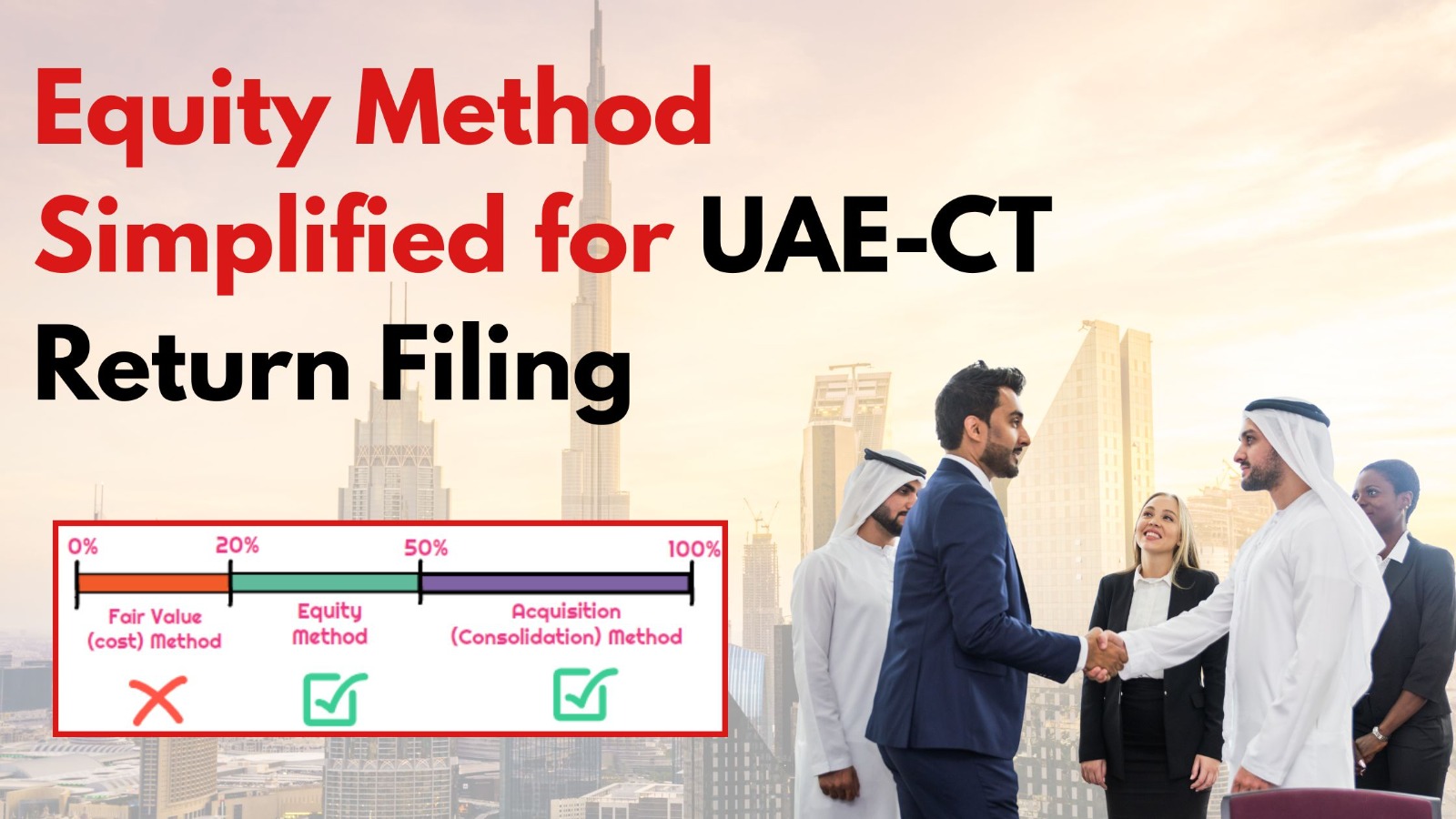Equity Method Simplified for UAE-CT Return Filing
2025-11-06

Regarding filing the UAE Corporate Tax (CT), an understanding of the Equity Method of accounting for investments can help companies with trust in their tax reporting and reporting. Many companies in the UAE have substantial interests in other companies, often referred to as associates or affiliate companies, so it is important to know how these investments are accounted for and reported for tax purposes.
This article describes in basic terms what the Equity Method means, and provides a simple example, and sets the stage for discussion of its implications for UAE CT purposes.
The Equity Method is an accounting method used when one entity (the investor) has significant influence over another entity (the investee) but due to several management or legal arrangements, the investor does not control the investee.
Generally, significant influence is presumed when the investor entity owns between 20% and 50% of the voting power of the investee. In this case, within the body of International Financial Reporting Standards (IFRS), the investee is referred to as an associate or affiliate.
Instead of recognizing dividends received as income, the investor recognizes their share of the investee’s profits and losses directly in the investor’s financial statements. This closely reflects the economic reality of the investor’s income position, since their income is related to the performance of the associate, not simply the dividends received.
Practical Example
Let’s look at a simple case to understand how the Equity Method works in practice.
Scenario:
At acquisition, A-Co records the investment at cost under “Investments in Associates” (a long-term asset).
Debit Investment in Associates AED 1,000,000
Credit Cash AED 1,000,000
A-Co’s share of B-Co’s dividend is 40% of AED 100,000 = AED 40,000.
This reduces the carrying value of A-Co’s investment because the cash represents a distribution of previously recognized profits.
Debit Cash AED 40,000
Credit Investment in Associates AED 40,000
A-Co’s share of B-Co’s net income is 40% of AED 200,000 = AED 80,000.
This increases A-Co’s investment value and is recorded as investment income.
Debit Investment in Associates AED 80,000
Credit Investment Income AED 80,000
By year-end, the investment account has an ending balance of AED 1,040,000, representing:
This increase of AED 40,000 corresponds to A-Co’s share of B-Co’s retained earnings (AED 100,000 × 40%).
Under the UAE Corporate Tax regime as set forth in the Federal Decree-Law No. 47 of 2022, how you account for investments affects your taxable income. The accounting treatment of investments in associates will be especially important for companies filing their CT returns, as the adjustments associated with the Equity Method may not create taxable income or deductible expense amounts.
So, here’s how it generally works:
The Equity Method supports a more honest reflection of your economic relationship with an associate. However, when filing your UAE corporate tax return, you need to understand the distinction between accounting treatment and tax treatment.
Engaging an accounting firm Dubai that is knowledgeable about IFRS, and CT law will support you in meeting your reporting obligations and continuing to maintain compliance while optimizing your position with corporate tax.